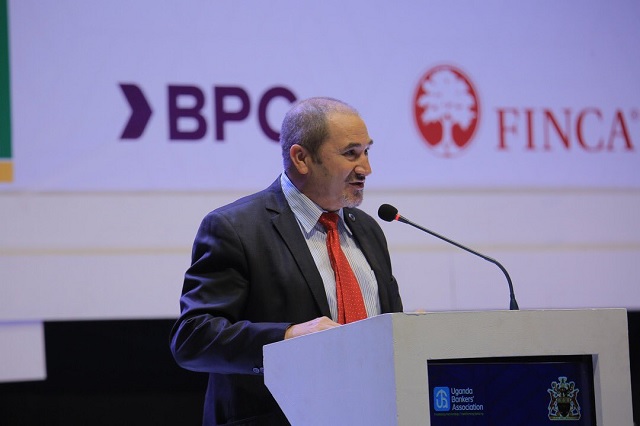
Kampala, Uganda | THE INDEPENDENT | The European Union has joined the Ugandan tourism sector and the civil society to demand increased government funding for the sector. The tourism sector is Uganda’s top foreign exchange earner, valued at US$ 1.6 billion in 2019/2020, while the number of foreign visitors was about 1.4 million.
The Uganda Tourism Board, the agency responsible for the promotion of the sector internally and to the foreign markets received Shillings 181 billion for the year 2021/22, with US$ 30 million (110 billion Shillings) going to marketing.
The overall budget for the sector this financial year increased to Shillings 194.7 billion.
Compared to Kenya in 2020/21, the government allocation to the sector was equal to about Uganda Shillings 300 billion but has been cut this year to just over Shillings 160 billion, with Shillings 58 billion going to promotional activities.
Luis Lechiguero, the head of programs European Union delegation in Uganda told the 5th Annual Bankers’ Conference that like his home country Spain, Uganda’s tourism has all it takes to transform the country, if only the right decisions are made. Lechiguero says in less than six months that he has been in the country, he has toured half of the gazetted tourist-protected areas and can tell how much potential the country has.
He says however, that the government and the banking sector have not done much in promoting the country as a tourist destination. One way according to him, is to benchmark other countries even in the region, what they have done to take their tourism sector to the current levels.
On its part, the EU gave a grant of about Shillings 20 billion through the Uganda Development Bank, to help the sector survive the effects of the COVID-19 pandemic.
This brought the total to Shillings 60 billion including the government rescue package, and the grant helped the interest rate to drop from 12 percent to about 8 percent according to UDB.
The management of the fund, however, caused discomfort in the sector as the bank was accused of favoring some operators at the expense of smaller businesses, by setting conditions that the majority could not afford according to the Association of Tour Operators. Francis Mwesigye, the Chief Economist at the bank says that they are aware of the complaints and accusations labeled against them.
He however says that the money which is channeled through the UDB comes with the conditions for qualification. He says that they have not given up on this category of entrepreneurs, as there are initiatives meant to help them put in place what is required.
The bank has also been accused of not focusing on the smaller entrepreneurs, by setting the minimum loan amounts to 100 million shillings, which is beyond the needs of the majority of the operators. But Dr. Mwesigye says they have since introduced more flexible and affordable loan products.
Uganda’s tourism earns the country 1.6 billion dollars annually according to the 2019/2020 figures, compared to Kenya, which earned 8.5 billion dollars, and Tanzania 6.5 billion. In terms of importance to the economy, the sector contributed 7.7 percent to the GDP, compared to 10.7 percent in Tanzania, 8 percent in Kenya and 15 percent in Rwanda.
Commenting on the level of funding by the government of Uganda, Julius Mukunda, the Executive Director Civil Society Budget Advocacy Group, said the low funding to the sector could be one of the reasons commercial banks are not encouraged to lend to it.
Mukunda also notes other areas where he says the government has been too slow, especially in tourism infrastructure.
The Director for Tourism at the Ministry of Tourism, Wildlife and Antiquities, Basil Ajer assured the sector that the financing gap issue is being tackled with various initiatives including reviewing legislations. These include the amendment of the Tourism Act which will enable private investments in more areas in the sector like wildlife conservation, which he says will help where the government has fallen short.
The tourism sector lost 90 percent of its business when COVID-19 broke out and in 2020, only 150,000 visitors were recorded, while more than half of the revenues to tourist areas were from domestic tourism. This is mainly because international travel was almost totally locked down, and this also affected the MICE (Meetings, Incentives, Conference and Exhibitions) tourism.
Hotels were also rendered redundant and more than 400,000 jobs were lost. Now, however, the sector is upbeat that this segment is picking up again. Daudi Migereko, the Chairman of the Uganda Tourism Board says for example, that there are international conferences due in Uganda starting next year and that this will call for a lot of investment in facilities, hence the need for banks to increase financing to the sector.
He also says there is a need to extend hosting facilities to the countryside, especially in the new cities being established, which will increase the benefits of the tourism sector to the country.
*****
URN
 The Independent Uganda: You get the Truth we Pay the Price
The Independent Uganda: You get the Truth we Pay the Price



I would like support the increase funding in tourism sector but how beneficialies are chosen is what i do not know especially to the coming in business entreprenuers.